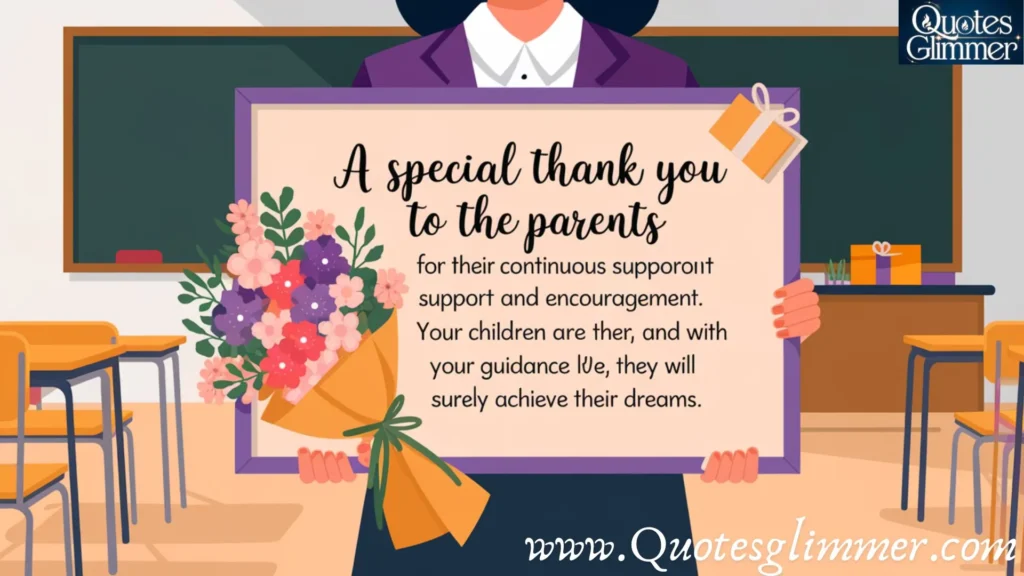Expressing gratitude to parents through a Heartfelt Thank You Message plays a pivotal role in strengthening the parent-teacher relationship. It acknowledges the essential partnership that enables a child’s holistic development.
“Parents are the cornerstone of their child’s education, and their active involvement can transform a student’s academic journey. In this article, we’ll explore heartfelt thank-you messages from teachers to parents, highlighting why these expressions of gratitude are not just a courtesy but a vital part of the educational ecosystem.”
Why Positive Messages to Parents Are Incredibly Beneficial
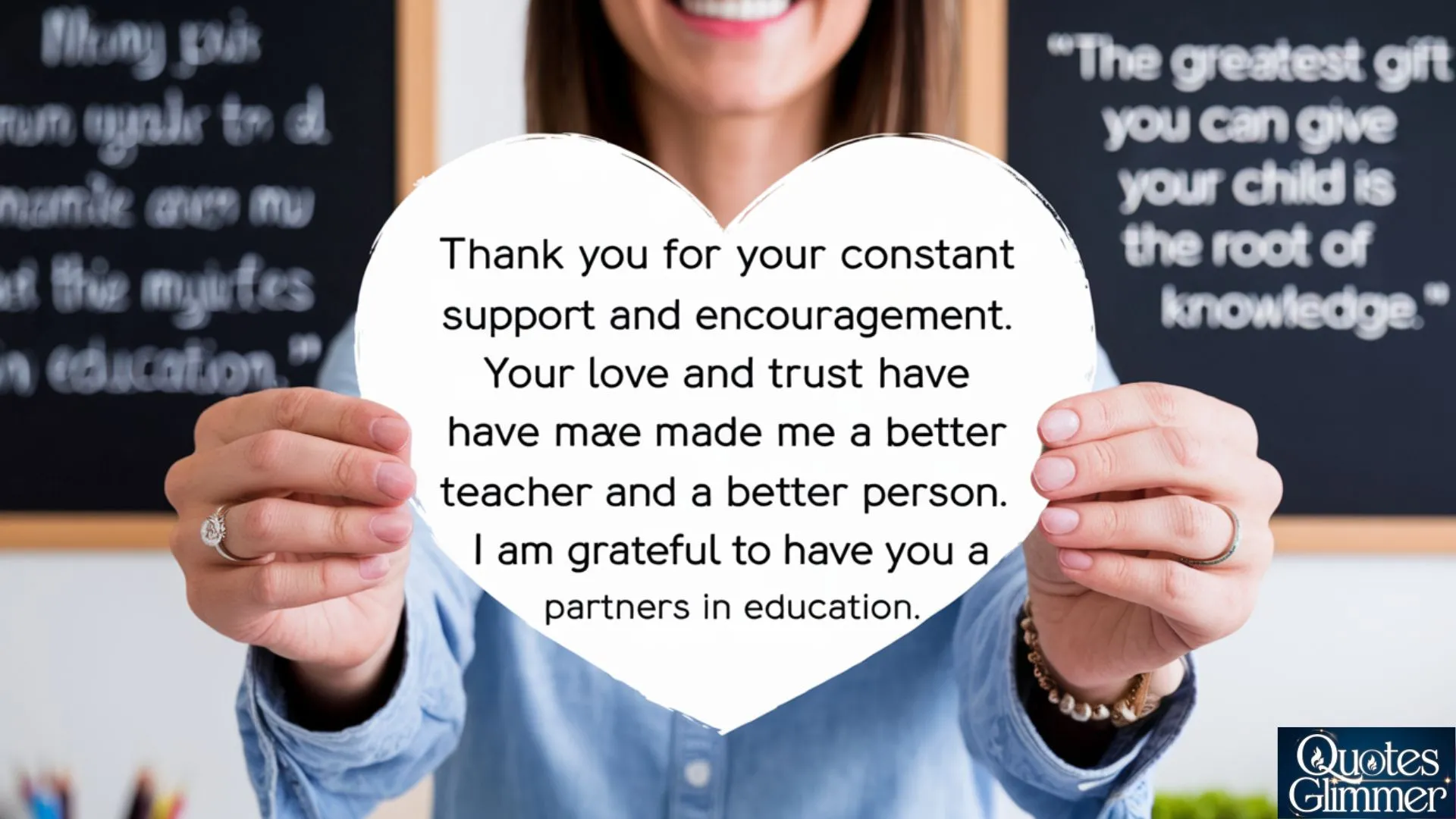
In any educational partnership, communication between teachers and parents fosters a supportive learning environment. When teachers take a moment to send positive messages to parents, it not only boosts parental engagement but also strengthens teacher-parent collaboration. This collaboration serves as the bedrock of a child’s success, as both home and school are integral to the learning process.
Building Trust and Fostering Communication
Parents and teachers share a common goal—fostering student success. A simple message of appreciation builds trust between teachers and parents, paving the way for open communication. Trust is essential for discussing concerns, achievements, and strategies for a student’s progress. For instance, a teacher might send a quick thank-you note for a parent’s attendance at a school meeting, which acknowledges their commitment and fosters ongoing engagement.
Boosting Parental Involvement in School
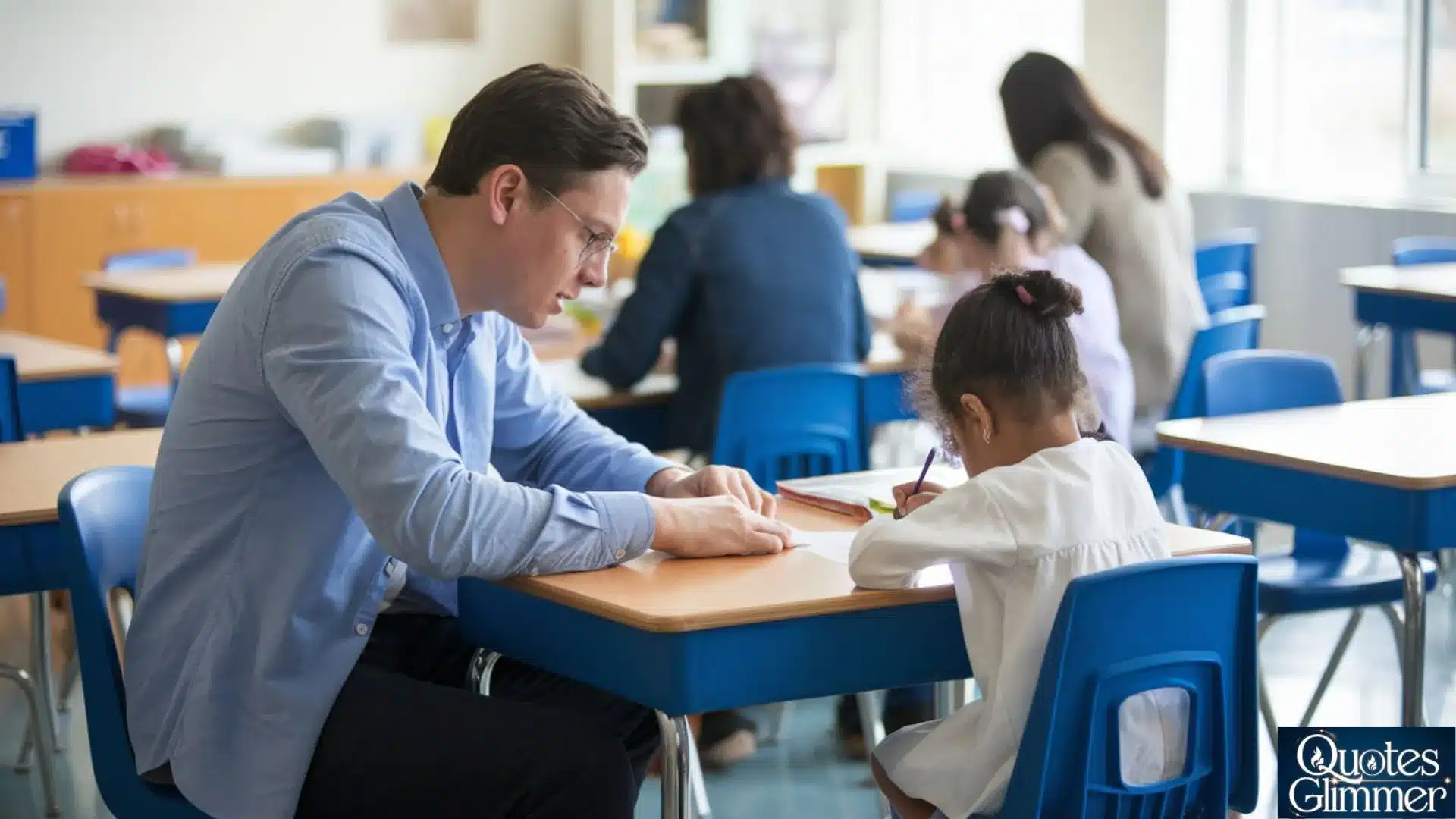
Studies show that parents who feel appreciated are more likely to stay involved in their child’s education. By sending thank-you notes to parents, teachers encourage increased parental involvement in school activities such as volunteering, attending workshops, or contributing to school events. This parent-teacher connection can lead to enhanced outcomes for students, as engaged parents support their child’s learning both at school and at home.
The Impact of Short, Positive Messages
Leaving short, positive notes for parents is not just a kind gesture; it’s an effective communication tool that impacts the educational environment in numerous ways. Below are some of the key benefits:
1. Encouraging a Positive Cycle of Engagement
When teachers send positive educational messages to parents, it creates a cycle of positivity. Parents who feel valued are more likely to engage in their child’s academic life, contributing to both their child’s success and a thriving school community.
2. Supporting Academic Growth

Acknowledging a parent’s efforts, such as helping with homework or reinforcing classroom values, can significantly impact a student’s performance. For example, a message like “Thank you for helping your child stay on top of their reading assignments! It shows in their enthusiasm in class” not only motivates parents but also reinforces the importance of continued academic support at home.
3. Celebrating Progress
Celebrating small victories is crucial in building community in education. Sending a message that celebrates progress—whether it’s academic achievements or behavioral improvements—helps parents feel like integral contributors to their child’s success. This kind of recognition fosters a sense of pride and responsibility.
4. Addressing Challenges with Positivity
In times of difficulty, a message that acknowledges the challenge while offering support goes a long way. For example, thanking parents for their patience during a difficult exam period or for collaborating on behavior improvement shows that teachers and parents are a united front in addressing challenges.
Heartfelt Thank You Messages for Parents

Here are some carefully crafted thank-you messages for different situations to show teacher appreciation for parent support.
Thank You for Supporting Academic Success
- “Thank you for consistently encouraging your child to excel academically. Your involvement makes a visible difference in their success.”
- This message is ideal for parents who are active in their child’s academic journey. It acknowledges their efforts and encourages continued engagement.
- “I truly appreciate the support you provide at home. It’s clear that your dedication helps reinforce what we teach in class.”
- Perfect for parents who reinforce classroom lessons at home, emphasizing the impact of the home-school connection.
Celebrating Parental Engagement
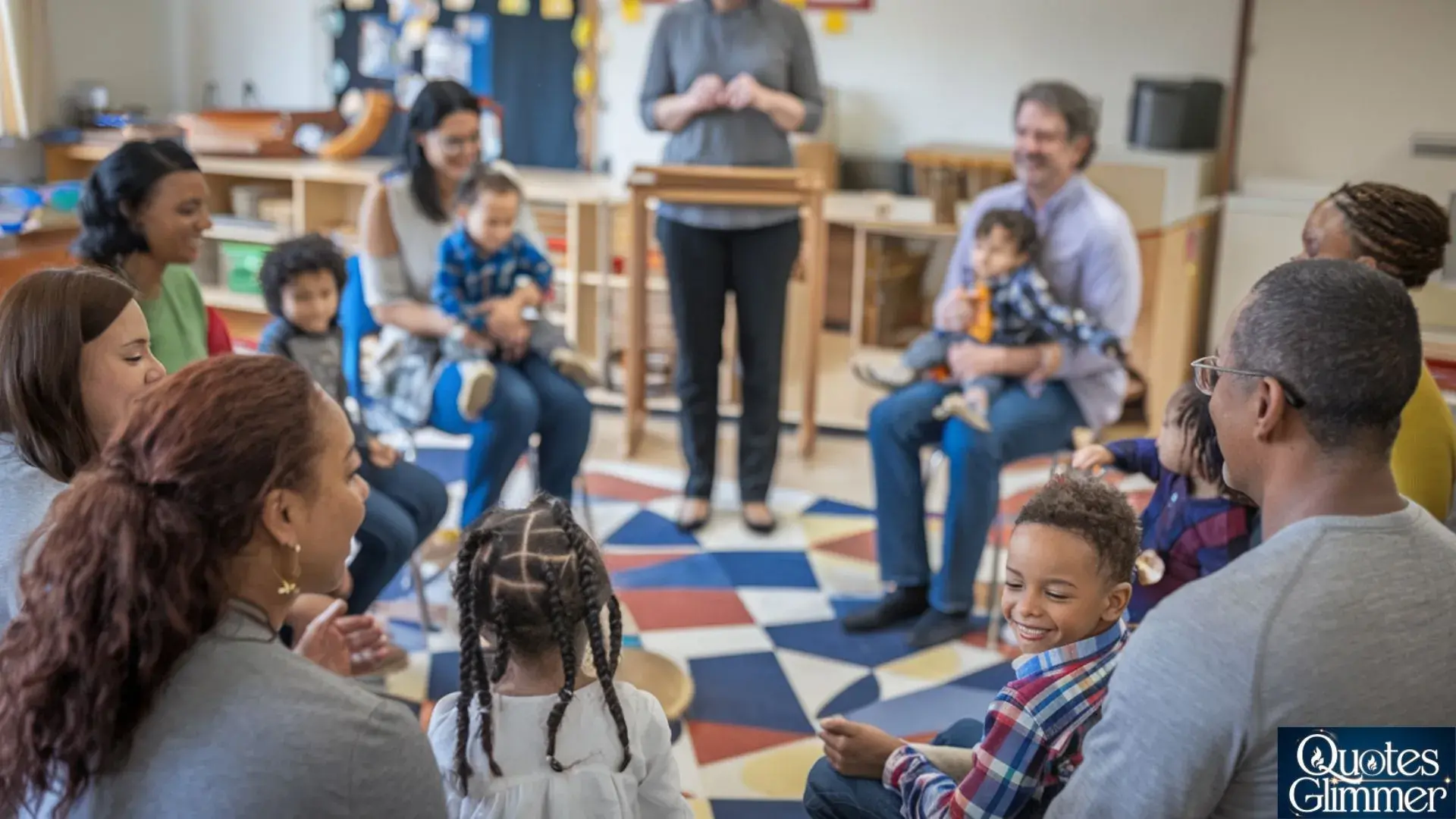
- “Your participation in school events is invaluable. Thank you for helping create a vibrant and engaged school community.”
- Recognizing the value of parental participation in school events highlights the importance of parental involvement in school.
- “I appreciate the time you take to attend parent-teacher meetings. Your insights help us work together for your child’s success.”
- This message focuses on collaboration and how these meetings enhance teacher-parent collaboration.
Acknowledging Home-School Collaboration
- “Thank you for fostering a love of learning at home. Your child’s enthusiasm for discovery is contagious!”
- Celebrating parents who encourage learning outside of school and emphasize curiosity in their children.
- “I’m grateful for the open communication we share. It makes addressing concerns and celebrating successes so much easier.”
- Recognizing the positive communication with parents helps build a stronger bond and encourages future dialogue.
Celebrating Progress, Big or Small
- “I wanted to take a moment to celebrate your child’s recent improvement. Your support is a big part of their growth.”
- Celebrating student progress is essential for motivating both the student and their parents.
- “Your child has been making steady progress, and it’s clear that the work you’re doing at home is making a real difference.”
- Acknowledges the parent’s efforts and highlights the partnership in fostering the child’s academic growth.
Thank You for Creating a Positive Learning Environment
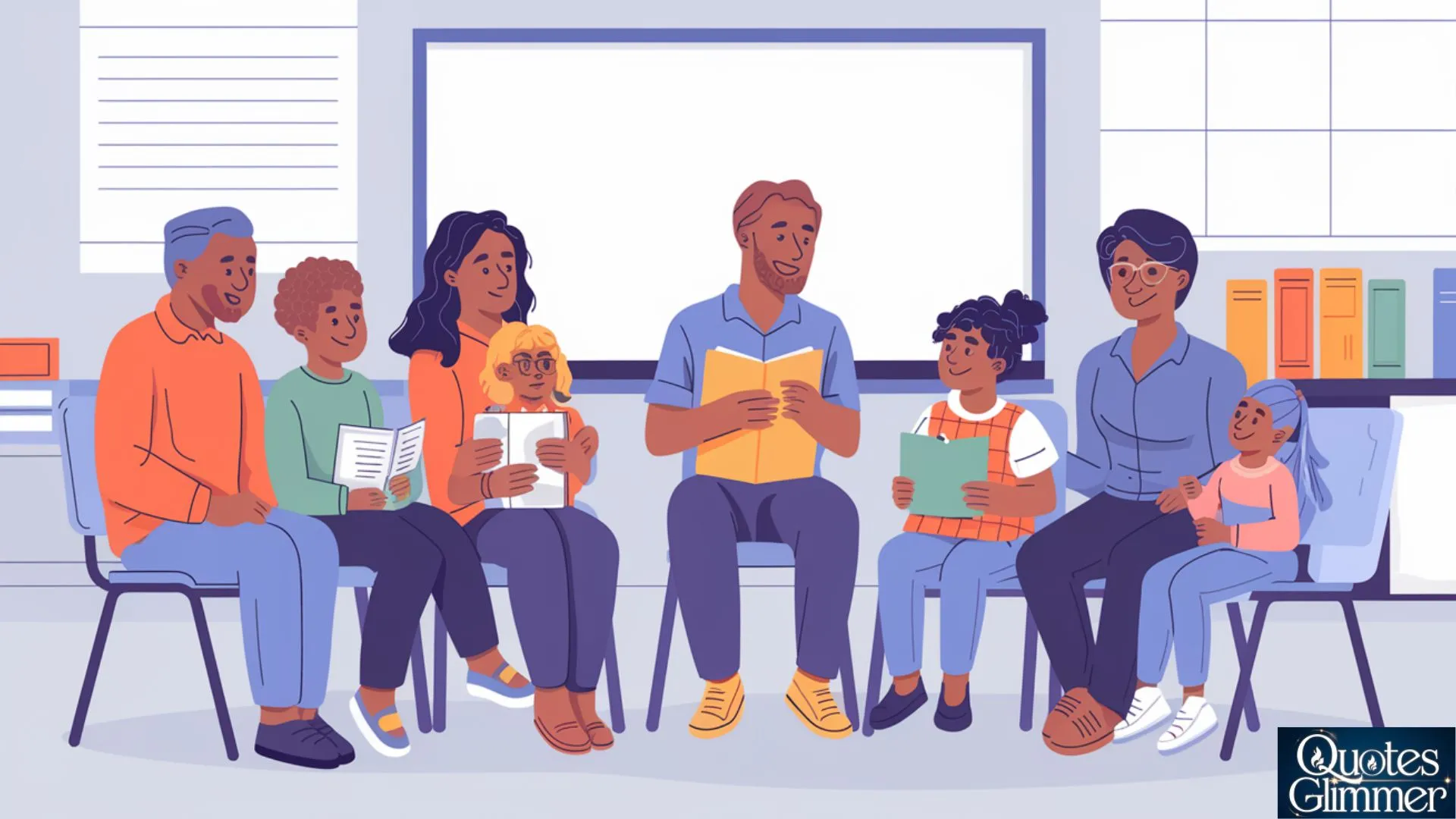
- “Thank you for setting such a great example for punctuality and attendance. Your child’s habits are reflective of your dedication.”
- Highlighting the importance of a supportive learning environment, which starts with good habits at home.
- “I appreciate the way you create a calm and focused study space at home. It’s been a game-changer for your child’s concentration.”
- This message connects the home environment to supporting academic growth.
Recognizing the Emotional and Social Support
- “Your encouragement during tough times has been so valuable. Thank you for being a steady source of support for your child.”
- A heartfelt message that thanks parents for their emotional support during challenging times.
- “Thank you for always being there for your child, whether in the classroom or during extracurricular activities. Your presence makes a difference.”
- This emphasizes the parent’s role beyond academics, acknowledging their involvement in fostering student success through various activities.
The Role of Teacher-Parent Collaboration in Student Development
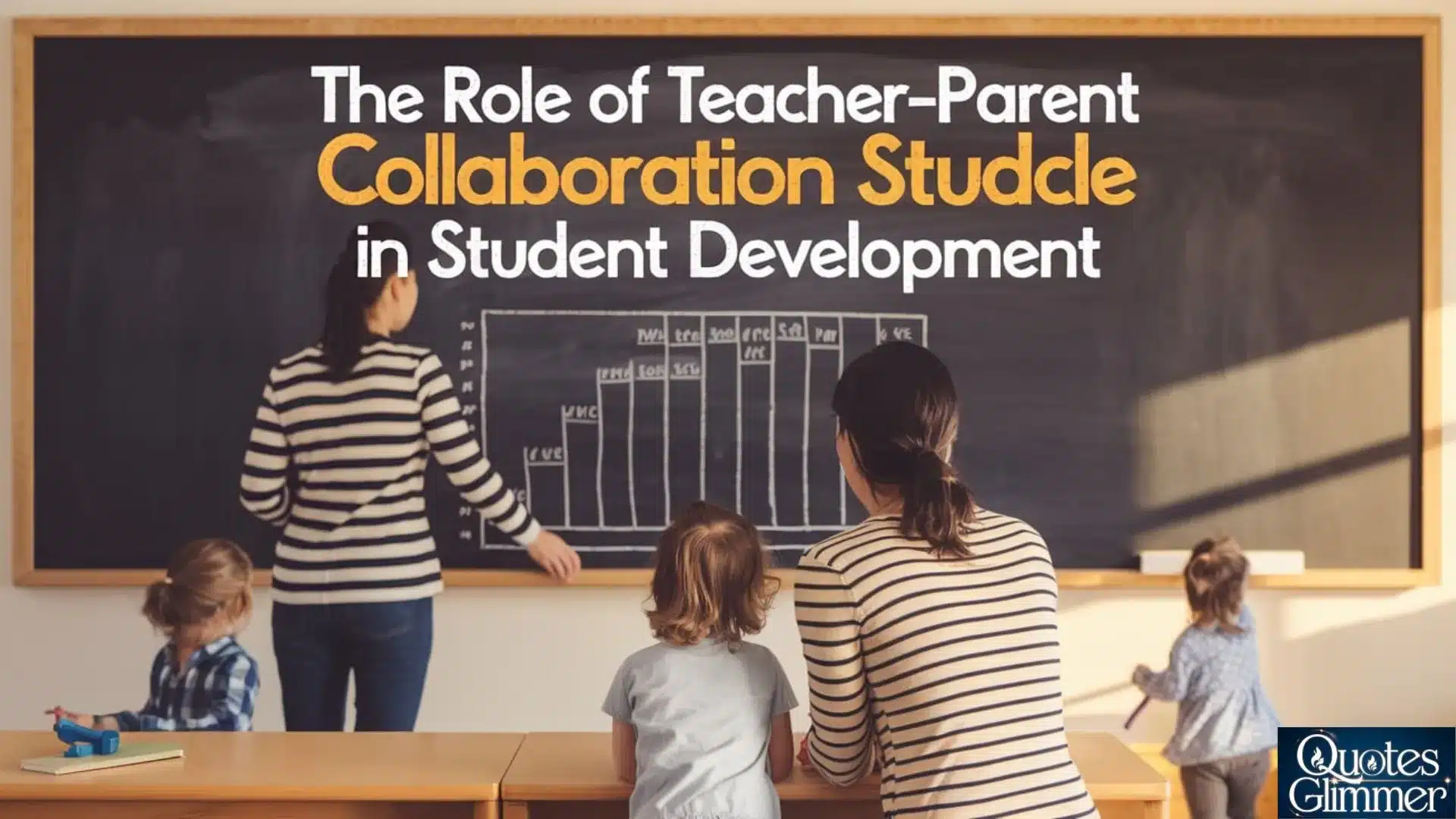
Collaboration for student development goes beyond academics. When parents and teachers work hand in hand, students benefit from a well-rounded educational experience. This partnership allows teachers to better understand a student’s needs, learning styles, and strengths, while parents gain insight into how to support their child’s learning at home.
How to Strengthen Teacher-Parent Collaboration
Here are some actionable ways teachers can enhance teacher-parent collaboration:
- Regular communication: Teachers should maintain consistent, open communication with parents about their child’s progress, concerns, and achievements.
- Involvement in decision-making: Invite parents to participate in discussions about their child’s academic goals and strategies.
- Personalized updates: Tailor messages and updates to reflect the specific achievements and needs of each student, making communication feel more personal.
- Engagement in school activities: Encourage parents to participate in school events, PTA meetings, and volunteering opportunities.
Creating a Supportive Learning Environment

A supportive learning environment is one where both teachers and parents actively contribute to a child’s education. Positive messages from teachers can help set the tone for this environment by reinforcing the value of parental involvement, recognizing achievements, and offering support during challenges.
Ways to Foster a Supportive Learning Environment
- Encourage parental engagement in education by offering resources or strategies parents can use to support learning at home.
- Celebrate small victories with positive reinforcement, showing parents that every step forward is important.
- Address challenges with positivity by framing setbacks as opportunities for growth, reinforcing a growth mindset.
Celebrating Parent Efforts in Education
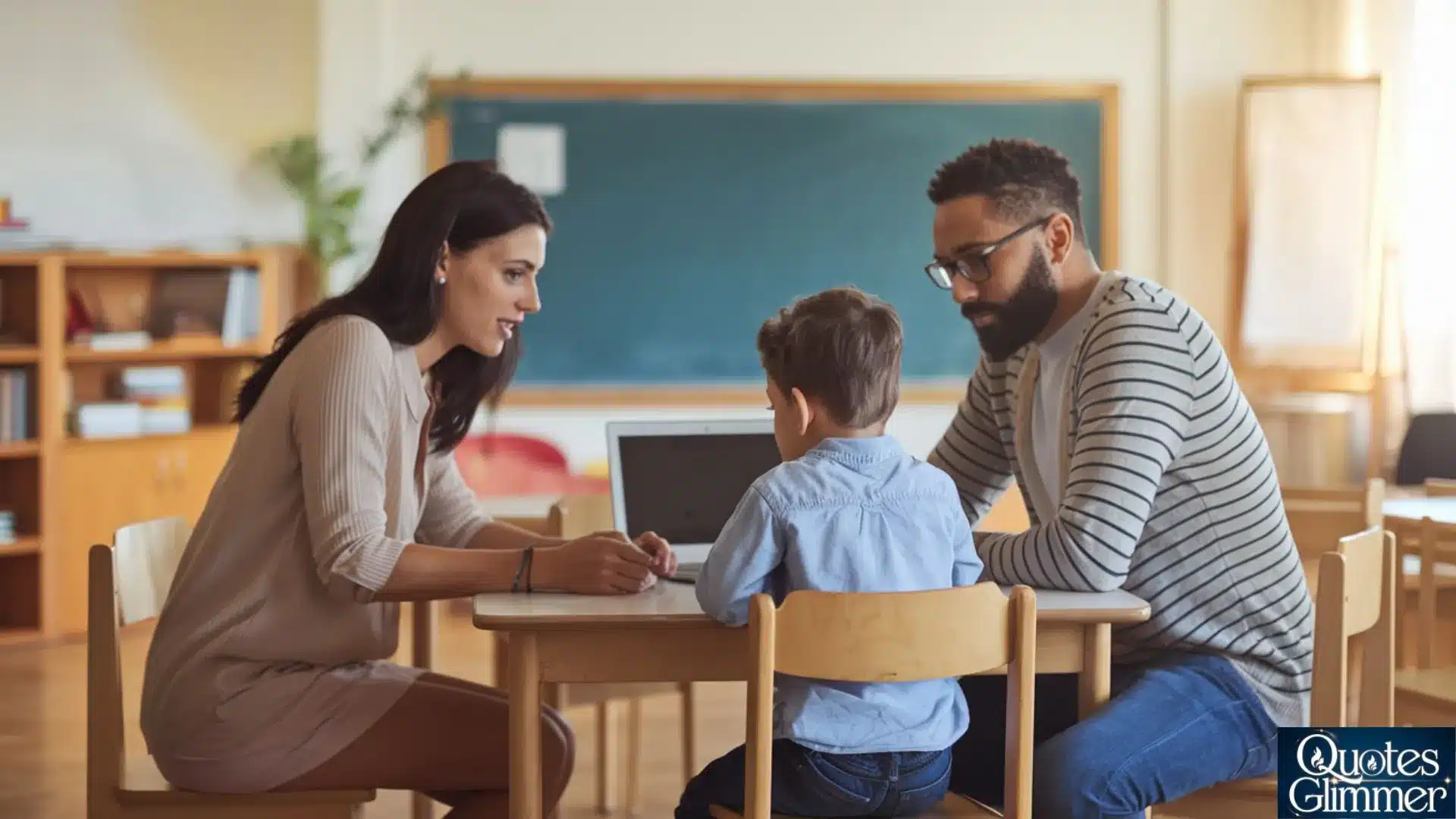
Parents often go above and beyond to ensure their child succeeds. Whether it’s attending meetings, volunteering for school activities, or simply being there to provide encouragement, parents play a vital role in the educational journey. Recognizing these efforts is essential for enhancing teacher-parent relations and ensuring a collaborative partnership.
Simple Ways to Celebrate Parent Contributions
- Send personalized thank-you messages that highlight specific contributions.
- Share student progress with a note of appreciation for the parent’s involvement.
- Acknowledge the parent’s role in extracurricular or community activities that support their child’s growth.
The Importance of Parent Support in Education
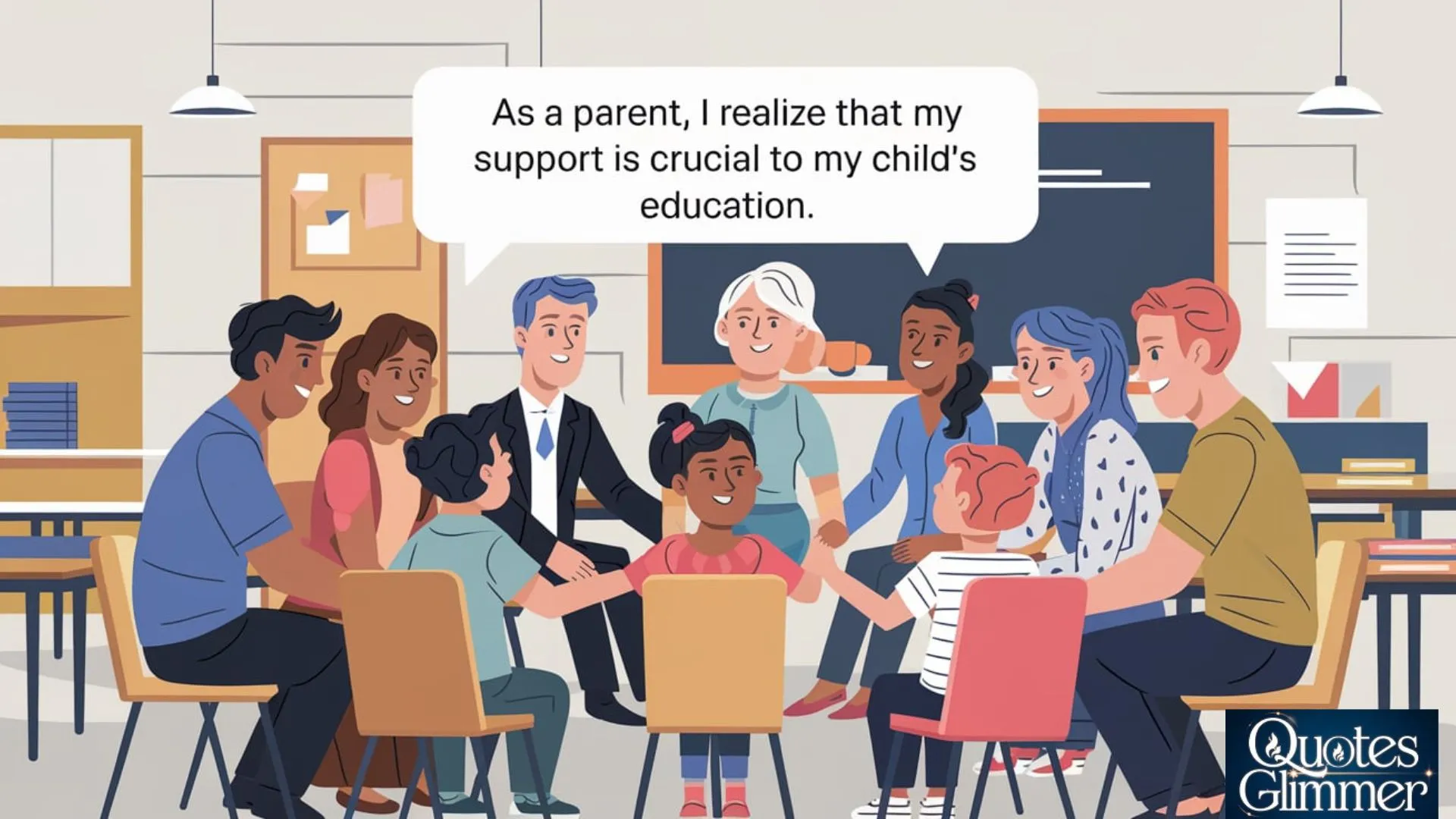
Parent support is crucial for a child’s success. From reinforcing classroom lessons to being actively involved in the school community, the parental role in child’s learning extends beyond just academics. Parental involvement in learning helps reinforce the skills and values taught in the classroom, making it easier for students to thrive.
Learn About Quotes
Case Study: The Impact of Positive Parent-Teacher Collaboration
In a study conducted at XYZ School, students whose parents were actively engaged in their education performed significantly better than those whose parents had minimal involvement. Teachers at the school implemented a program where they regularly sent positive educational messages to parents. The result? Increased parental engagement, improved student outcomes, and a stronger sense of community within the school.
Table: Key Benefits of Positive Teacher-Parent Communication
| Benefit | Impact |
|---|---|
| Trust Building | Encourages open and honest communication |
| Enhanced Parental Engagement | Parents become more involved in school activities |
| Improved Student Outcomes | Higher academic performance and better behavior |
| Sense of Community | Builds a collaborative environment for students, parents, and teachers |
| Motivation for Students | Students feel |
Positive Communication with Parents: A Key to Success
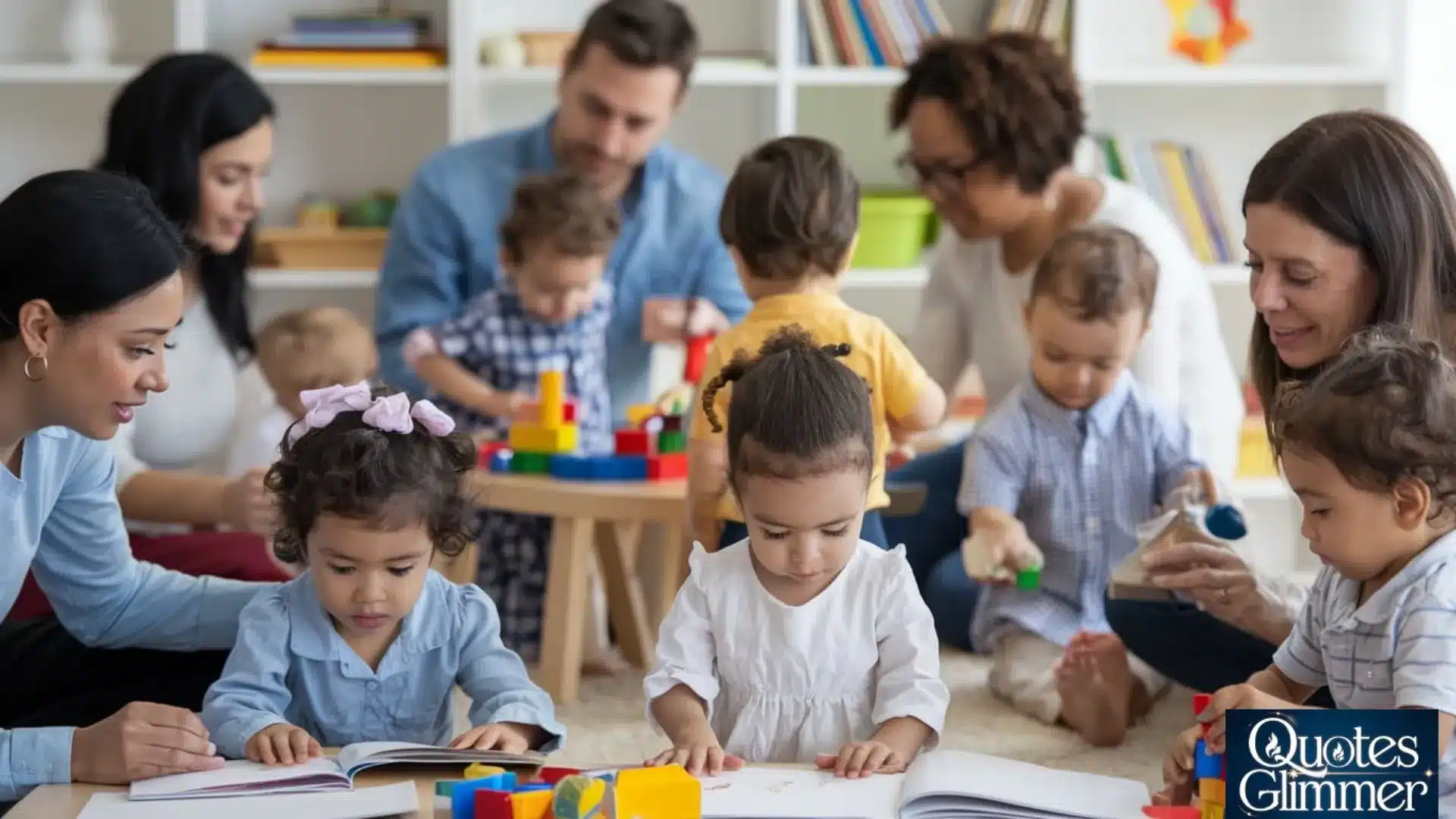
Positive communication with parents is one of the most effective ways to ensure that students receive consistent support both at school and at home. The value of teacher gratitude for parents extends beyond just politeness—it reinforces the essential role parents play in the educational process. Teachers should aim to maintain a consistent flow of communication, ensuring that parents feel involved, appreciated, and informed.
Encouraging Ongoing Conversations
A continuous dialogue helps build a more robust teacher-parent connection, where concerns, progress, and achievements are openly shared. Teachers can implement simple strategies like regular emails or quick thank-you notes to maintain this connection. For example:
- Weekly updates: A short summary of the student’s progress, paired with a thank-you for the parent’s involvement, keeps parents in the loop without being overwhelming.
- Celebrating milestones: Teachers can send a quick note saying, “I wanted to let you know how proud I am of your child’s recent improvement in math. Thank you for all the support you’re providing at home—it’s making a big difference!”
Enhancing Teacher-Parent Relations Through Positive Reinforcement
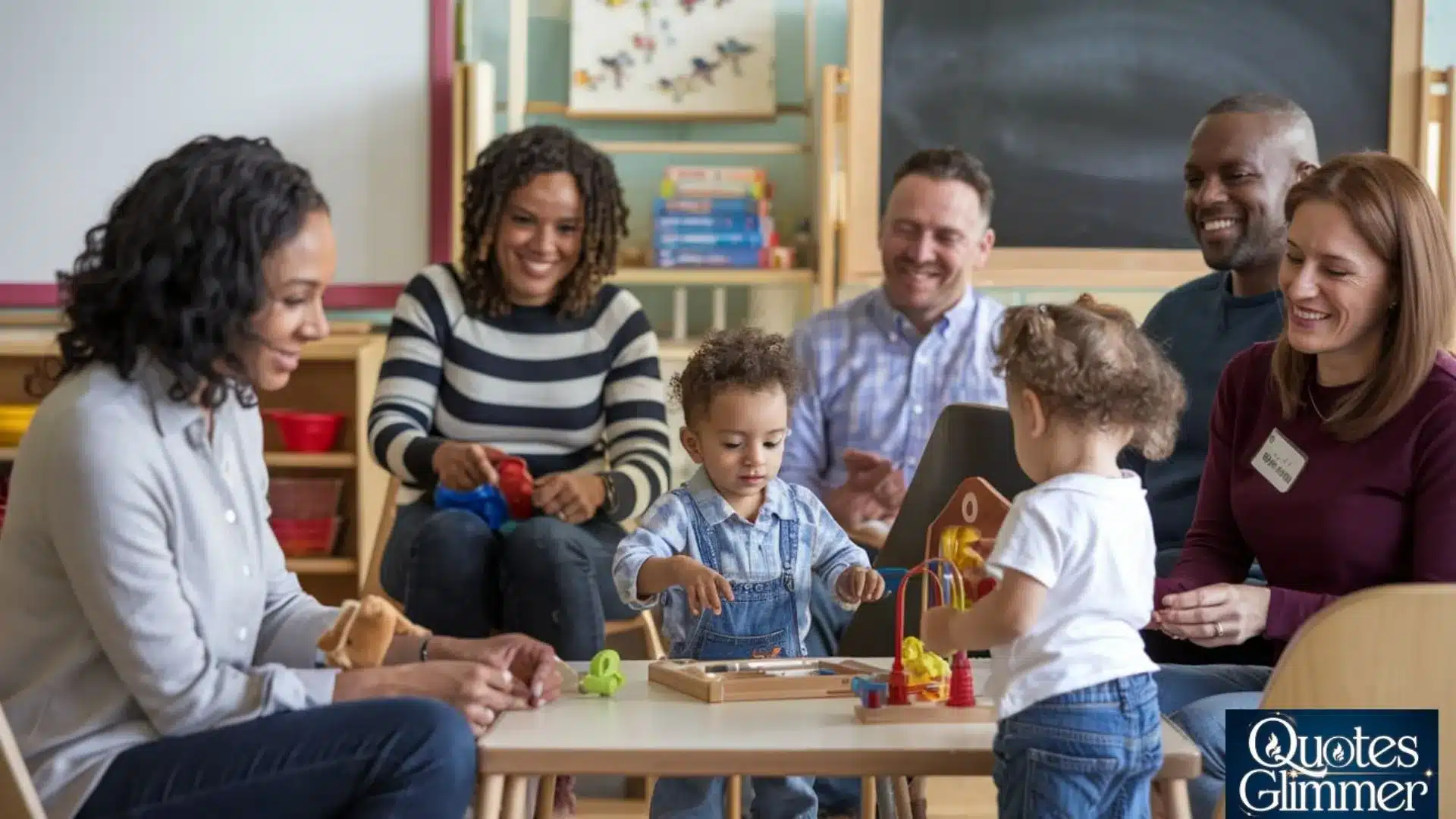
Effective communication is a two-way street, and positive reinforcement helps enhance teacher-parent relations. When parents feel appreciated, they are more likely to maintain an active role in their child’s education. Here are some tips for improving communication and collaboration:
- Be specific: When thanking parents, mention specific actions or contributions. For example, “Thank you for volunteering during our field trip. Your help ensured everything ran smoothly!”
- Focus on the child’s well-being: Let parents know how their actions are directly benefiting their child. A message like, “Your encouragement at home is helping your child stay motivated and engaged in their studies,” reinforces the importance of their involvement.
Conclusion:
Building a Stronger Educational Partnership
At the heart of every successful student is a strong teacher-parent collaboration. By sending thank you messages for parents from teachers, educators not only show appreciation but also build a foundation of trust and mutual respect. This educational partnership fosters a supportive learning environment, enhances parental involvement in school, and ultimately benefits the student’s academic and personal growth.
Through positive communication with parents, teachers can create an atmosphere where everyone is working together for the student’s success. Simple thank-you messages, ongoing conversations, and the celebration of both big and small achievements strengthen this collaboration, ensuring that both parents and teachers feel like valued partners in a child’s education.
Must Read Happy Birthday Wishes for Jiju (Brother in Law)
Final Thought
By embracing the power of gratitude and acknowledgment, educators can nurture meaningful connections with parents, celebrate the incredible impact they have on their children’s learning, and together, build a brighter future for every student.

“Explore our collection of inspiring quotes that uplift and motivate. From timeless wisdom to modern insights, find the perfect words to resonate with your thoughts and feelings. Whether you’re seeking inspiration for yourself or sharing with others, our quotes will add depth and meaning to your everyday life.”

